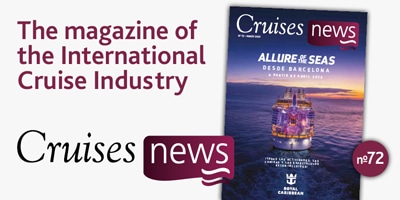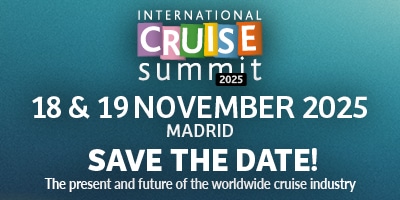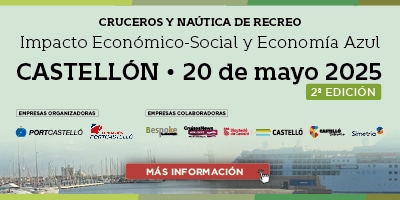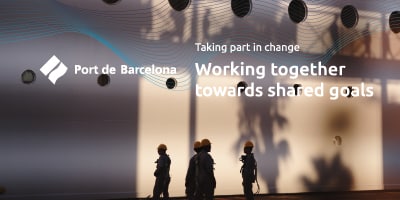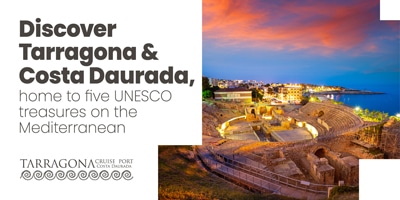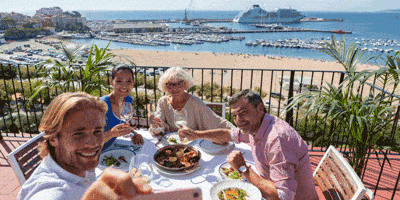During the 65th MedCruise General Assembly held in Malaga, Spain, and within the framework of Seatrade Cruise Med 2024, Theodora Riga was elected as the President of MedCruise.
 Theodora Riga succeeds Figen Ayan, Chief Officer at Galataport Istanbul, who will continue her involvement with the Association as Honorary President and elected Board of Directors member.
Theodora Riga succeeds Figen Ayan, Chief Officer at Galataport Istanbul, who will continue her involvement with the Association as Honorary President and elected Board of Directors member.
In addition to electing its new President, MedCruise also announced the new Board of Directors (BoD) for the term 2024-2027.
One of Riga’s first decisions was to appoint Nicky Guerrero as the association’s Secretary General, replacing Anja Lohrum. Nicky, who had previously served as Secretary, now begins a new chapter at MedCruise.
“I firmly believe in the value of collective action, or as we say in Greek “it is in unity, we stand strong” declared Ms. Riga. “With a vision to continue the work we have done so well, we are going to upgrade our activities and achieve even more, together, while ensuring the responsible development of cruising and benefiting all Mediterranean ports and destinations. Through the collective actions of our members and synergies with other associations and institutions (UNTWO, ESPO, AIVP, CLIA, IAPH, etc.) we partner to maximize the economic, environmental and socially sustainable development of ports, destinations and all stakeholders in the Mediterranean and adjacent seas.”

MedCruise Board of Directors for the 2024-2027 term
Theodora Riga, MedCruise president
Theodora Riga is the Chief Commercial Officer and Director of Strategic Communications at the Port of Thessaloniki.
Born in 1973 in the USA, Theodora Riga holds an MBA in Business Administration and has held senior managerial positions in port, shipping and financial services companies over the last 20 years. Ms. Riga is a member of the National Cruise Committee and a Board Member of a shipping company listed on the Athens Stock Exchange, as Commercial Director and as Management Consultant on Strategic Development, Sales, Marketing and Communication in the largest shipping companies in Greece, providing communication support to the Association of Passenger Shipping Companies.
Theodora Riga is also a Member of the Board of Directors of Thessaloniki Tourism Organization and the Hellenic Chamber of Shipping Representative on the Hellenic Government’s National Cruise Committee.
“I firmly believe in the value of collective action, or as we say in Greek “it is in unity, we stand strong”

How has the cruise sector in the Mediterranean changed in recent years, especially after the pandemic?
The pandemic served to remind us how vital the cruise industry is to the economies of port destinations in the Mediterranean and its adjoining seas. A total stoppage of the industry reminded us of the many advantages that our vibrant industry brings to many communities. Today the greatest challenges that we face are primary environmental and coping with geopolitical instabilities. However, the recovery in terms of numbers has seen the fastest growth compared to other forms of travel on the planet. 31.5 million passengers sailed globally in 2023 with this expected to rise to 35.7 million in 2024. The Mediterranean has returned to pre-pandemic levels, witnessing a 6.59% increase in passenger calls and a 7.91% rise in cruise calls in 2023 compared to 2019.
What will be the main focuses of your presidency?
The main aims of my term will be to promote sustainable cruise growth in the Med and its adjoining seas; to upgrade relationships and networking with Cruise Lines; to improve the public image of cruising; to share best practices and information and to generate knowledge for the industry. I would also like to address the regulatory challenges we face. Another goal will be to represent MedCruise in international fora, shaping initiatives and policies, whilst continuing the transformation of MedCruise into to a modern business association.
You are assuming the role at a time of growth in the cruise industry, but there are medium- and long-term challenges, such as berthing restrictions and increasing tourist taxes in more destinations. How are ports managing the passenger flows in popular Mediterranean destinations?
These are indeed challenges that need to be faced and considered at a time of growth. There can be no one solution for all ports, as we represent a great variety of small, medium and large ports, some within the EU and some outside of the EU. Clearly there needs to be very close cooperation between local authorities, tourist authorities and port authorities to be able to ensure sustainable growth.
Recently, you presented the findings of the sustainability study on MedCruise ports. What is the current situation, and in which area will the greatest efforts need to be focused?
The current situation is that 92% of the ports surveyed are taking actions to reduce carbon emissions. Clearly one of the most important efforts of the industry at the moment is to provide OPS. 94% of the ports surveyed are willing to offer OPS before 2030 and 29% already offer this.
During last month’s Seatrade Med event, MedCruise joined four other port associations in making a joint declaration committing to sustainable growth in the cruise industry. Will this involve any form of collaboration between associations?
Yes indeed and as we said in our press release, it is about recognising shared challenges, emphasising the importance of transparency, working with members, partners and all cruise stakeholders to find innovative solutions. Our shared goal is to ensure the cruise industry harmonises with both urban and rural environments.

There seems to be a certain polarization in the design of new ships, either they are very large, over 200,000 tons, or very small. How are Mediterranean ports integrating new infrastructures to accommodate larger and higher-capacity cruise ships?
Once again here as we represent ports of all sizes, there is no one recipe that fits all. Each port faces different challenges in order to adapt to ship sizes.
The war in Israel, which is spreading further each day, has halted cruise traffic to the Middle East and the Red Sea, but is it or could it be affecting nearby destinations like Cyprus or even the Greek Islands?
Geopolitical issues are always a very big challenge for ports, communities and operators in the industry. Clearly people will stay away from areas that they think are risky but for the moment these areas do not seem to be affected to a great extent.
How does MedCruise view the competition from other geographical regions, such as the Caribbean or Northern Europe, in terms of attracting cruise traffic?
As a second largest cruise market in the world, we realise the importance of our contribution to the industry. Competition is a healthy part of every business and destinations are always looking for new products, in order to entice customers to new experiences. However, there is a lot to be said for working together with other regions in order to ensure sustained growth for the industry.
By the way, your port, Thessaloniki, has seen tremendous growth in the last two years, going from fewer than 10 calls to 80, with similar numbers expected for 2025. What have cruise lines suddenly discovered about Thessaloniki?
The Port of Thessaloniki is one of the few ports worldwide where the cruise port is in such close proximity to the city centre, with 15 monuments inscribed on the UNESCO World Heritage List and over 30 museums all within walking distance. Thessaloniki is also the first City in Greece to be a member of UNESCO’s Creative Cities Network for offering a creative gastronomy scene. The multidimensional archaeological, historical, cultural and gastronomic identity of the city of Thessaloniki and the broader region in coordination with the continuous upgrading of the port infrastructure and services has solidified the trust of cruise lines, attracting more ships to the port thus generating value for the local economy and society.
Sigue las noticias de cruceros en Cruisesnews.es






